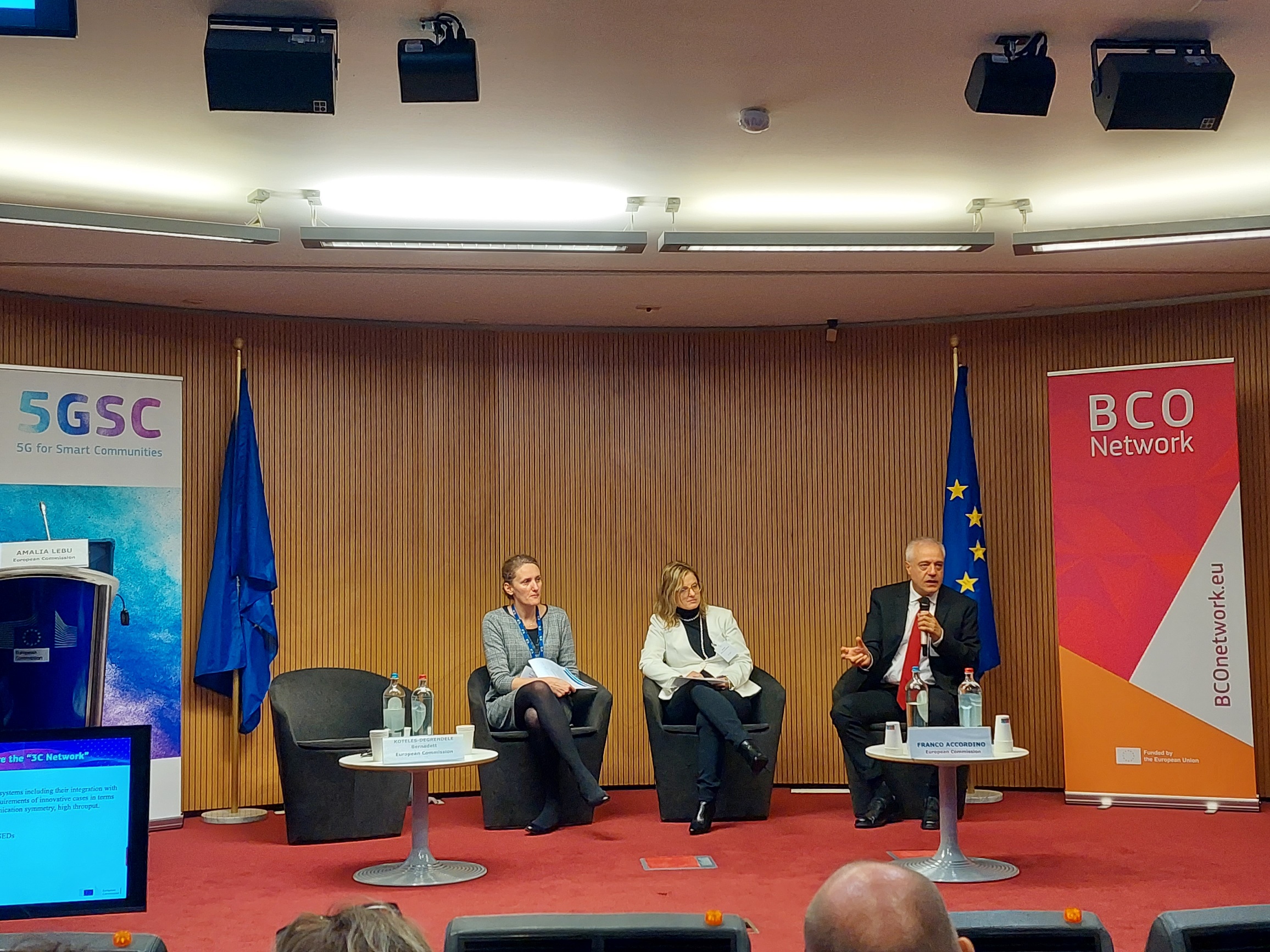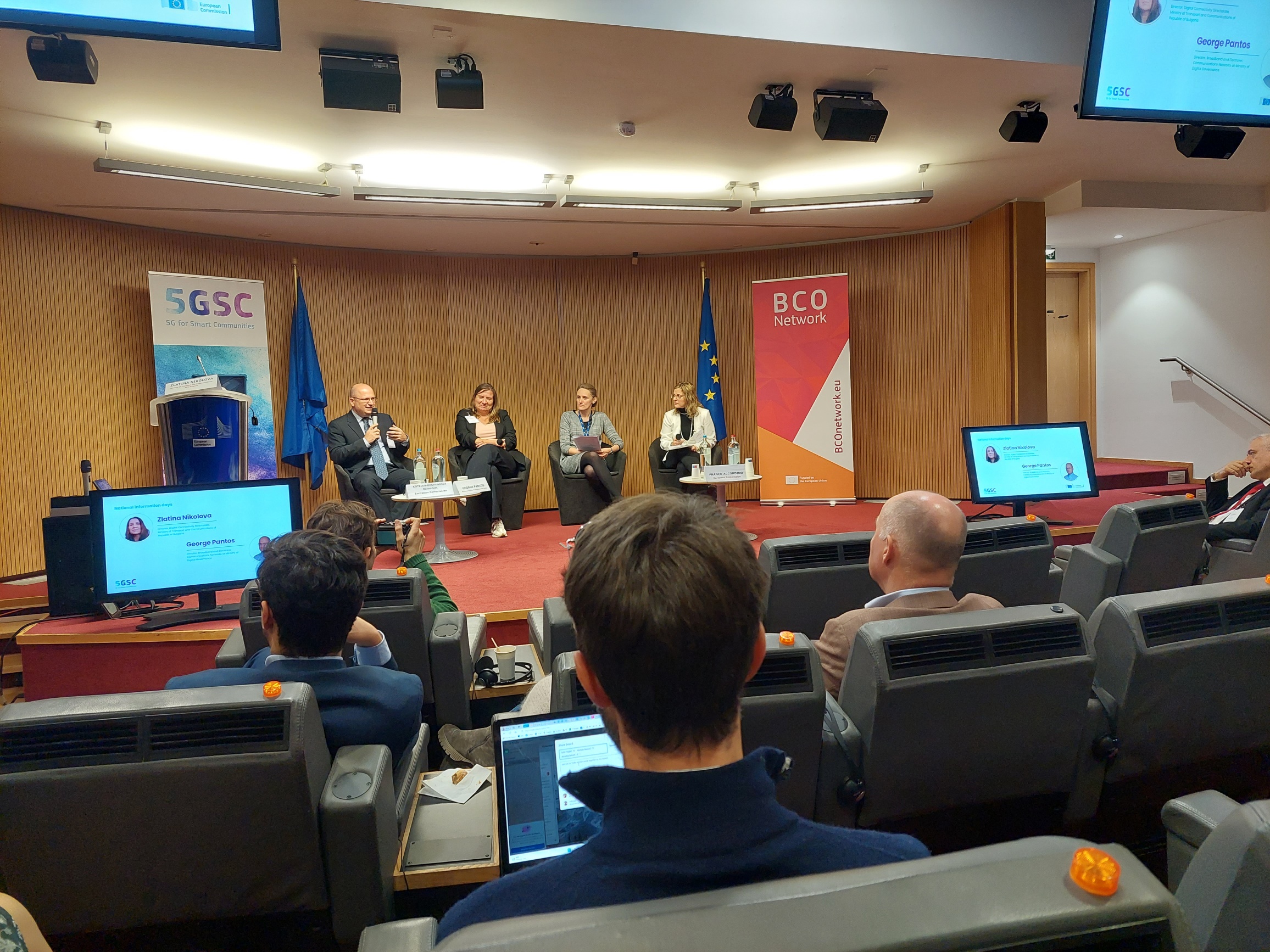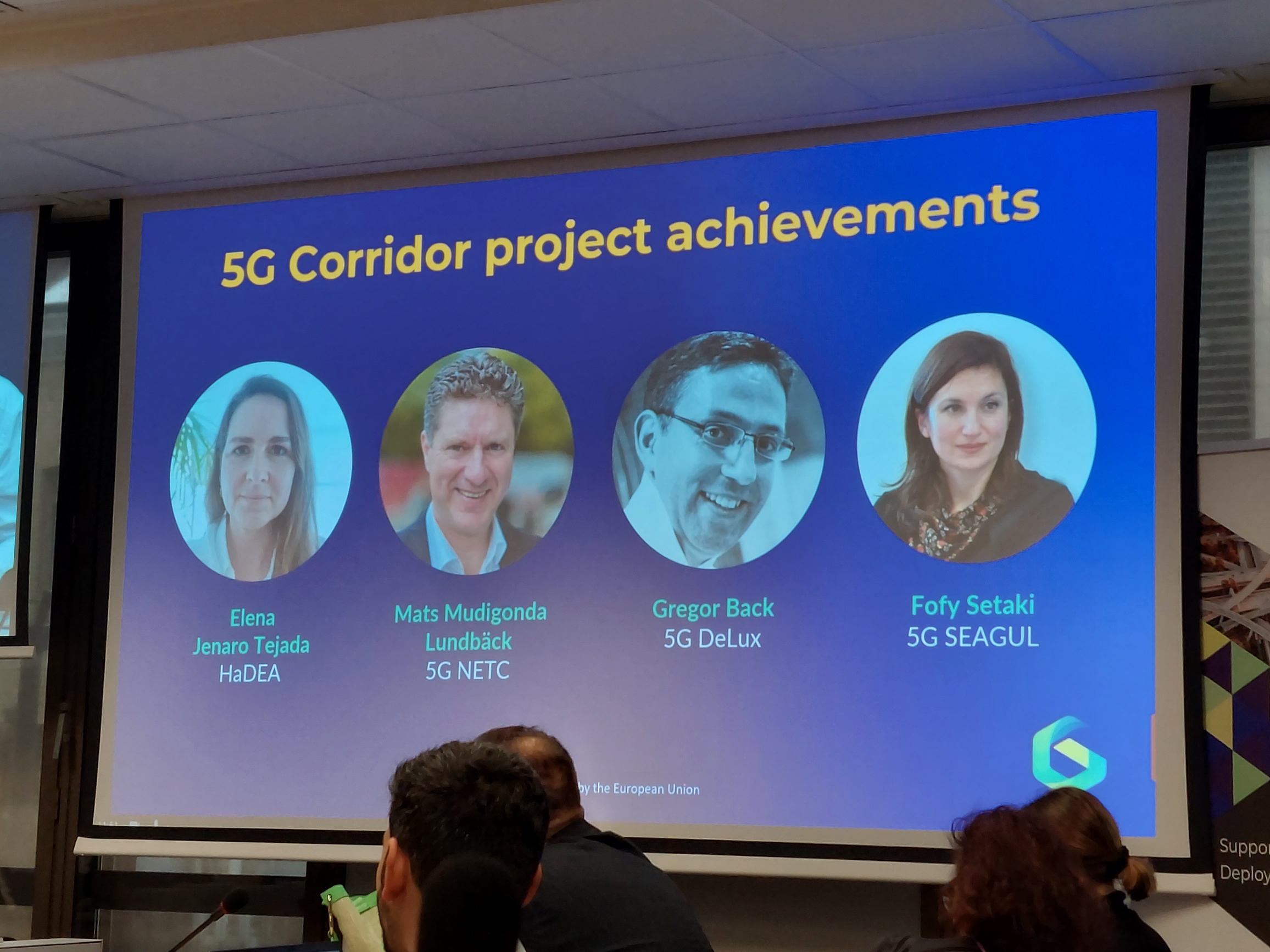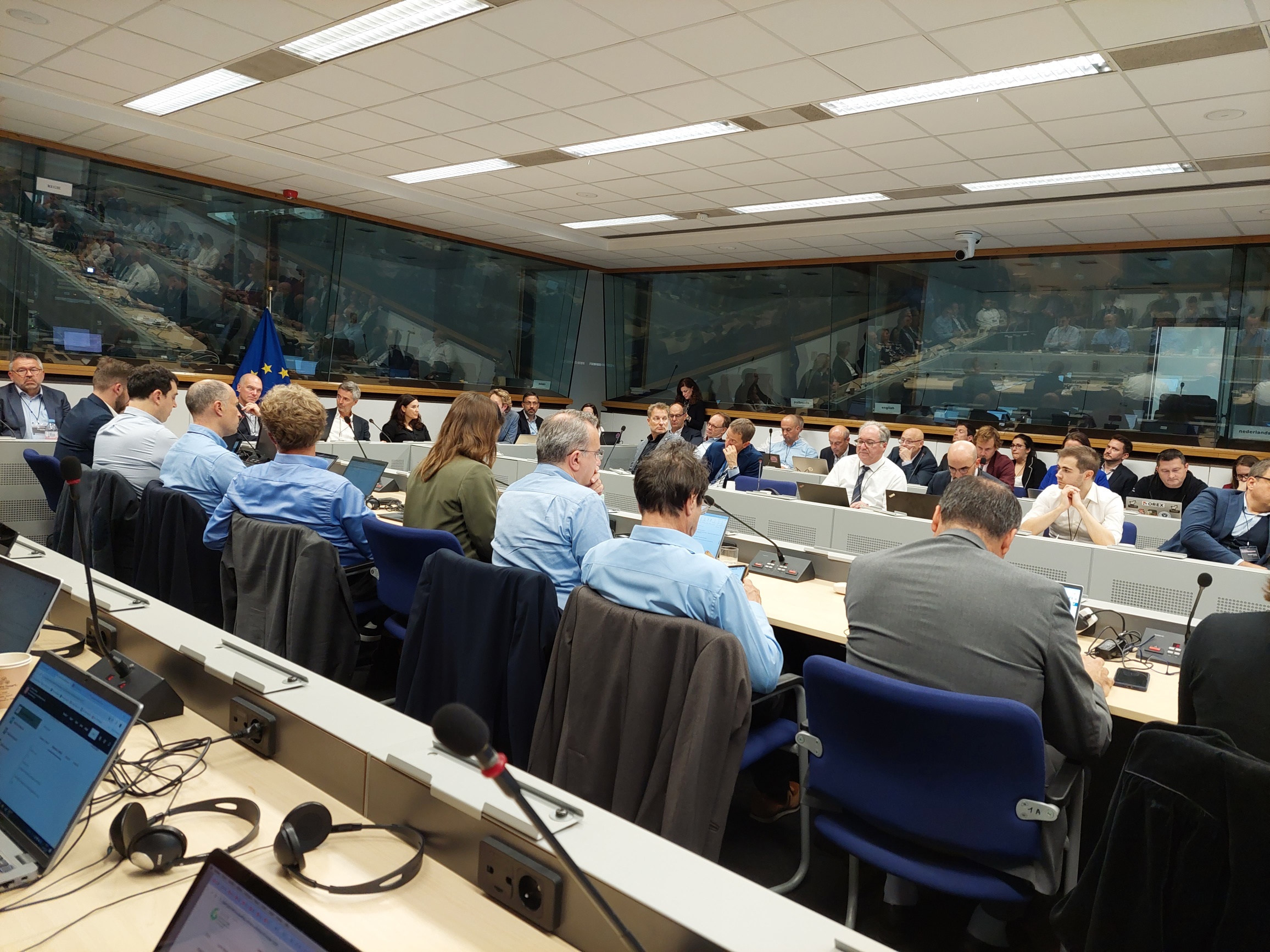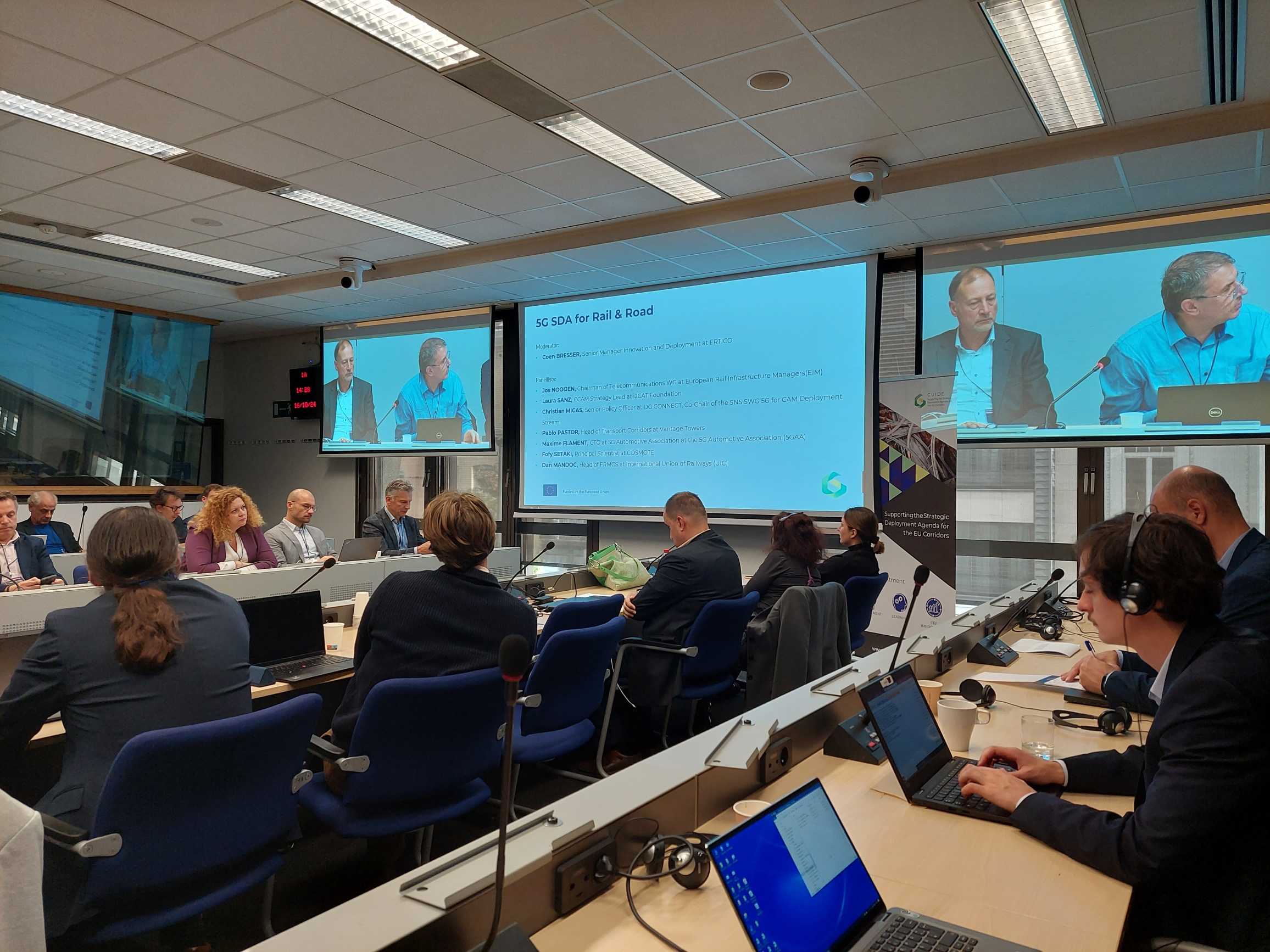Important Gatherings on 5G Technology and Digital Transformation Held in Brussels
ZAGREB, 22 October 2024 - Last week, several key events dedicated to the development and deployment of 5G technology across Europe took place in Brussels. Conferences, workshops, and meetings brought together experts, government representatives, members of the European Commission, and industry leaders to explore how 5G technology can drive improvements in digital infrastructure and smart communities, with a special focus on cross-border corridors and connectivity initiatives.
Annual BCO Conference and the Fourth Meeting of the 5G Smart Communities Innovation Group
The programme began with the BCO Annual Conference, which gathered representatives from broadband offices of EU member states and representatives of the European Commission. The conference shared experiences and best practices related to the development of broadband infrastructure, with particular emphasis on rural and remote areas.
On the same day, the fourth meeting of the 5G Smart Communities Innovation Group took place, where discussions focused on how 5G technology can enhance the development of local communities. Special attention was paid to the deployment of 5g technology in sectors such as healthcare, education, transport, and public services, with the goal of enhancing citizens' quality of life.
Topics related to the implementation of the Gigabit Infrastructure Act, the White Paper, progress on projects co-financed through the Recovery and Resilience Fund, and the new work programme of CEF Digital were discussed in panel discussions and participant exchanges.
The fourth public call for co-financing projects through CEF Digital was also launched, published on Tuesday, and is available via the provided link.
An important topic also concerned the recently adopted CEF work programme for the period 2024-2027, and new funding models such as “blending” or mixed financing, which would involve financial injections from investment funds into CEF Digital projects.
Cross-border 5G coverage along transport routes
As part of the programme, a workshop on cross-border 5G corridors took place. The event focused on the deployment of 5G infrastructure along key European transport routes that cross national borders. This technology will enable advanced mobility solutions, such as autonomous vehicles and smart transport systems. The importance of cooperation among member states and the sharing of knowledge was highlighted, aiming for Europe to take a leading role in the implementation of 5G technology and the improvement of cross-border services.
An important topic was the presentation of the 5GMEC4EU (5G Multi-access Edge Computing for Europe) initiative. MEC enables the relocation of computing resources and services to the "edge" of the network, meaning that data is processed closer to users and devices, thereby improving speed and reducing latency in applications that require high performance, such as IoT, smart cities, and autonomous vehicles. This initiative is focused on advancing the 5G ecosystem in Europe by developing solutions that support more efficient, faster, and more flexible data processing at the edges of the network.
Conclusions based on experiences from the previous three CEF Digital calls were also presented, along with guidelines useful for designing projects in the newly announced fourth call.
CEF Digital
In collaboration with the European Commission and the European Health and Digital Executive Agency (HaDEA), the first CEF Digital Community Event was held on 17 October. The Connecting Europe Facility - Digital (CEF Digital) initiative aims to develop digital infrastructure across Europe, making digital services more accessible and efficient. Representatives of operators, investors, project designers, contractors, public authorities, and local government units had the opportunity to work in small groups on concrete examples, exchanging and developing new ideas related to 5G corridor projects, 5G smart communities, and submarine cables.
5G for Smart Communities
The final day was highlighted by an event organised by the 5G for Smart Communi key topics related to the development and implementation of 5G and EDGE technologies within the EU, with a particular emphasis on user needs and technological solutions, including two brainstorming sessions.
A key presentation focused on the state of EDGE cloud infrastructure in the EU and its importance for enhancing the performance of 5G networks.
The event was concluded by Franco Accordino, a representative from the European Commission’s DG CNECT.
More information can be found at the following links:
- https://digital-strategy.ec.europa.eu/en/events/2024-bco-network-annual-conference-public-authorities-group-5g-smart-communities
- https://www.eurescom.eu/event/5g-corridors-workshop-5g-coverage-along-transport-corridors-brussels-on-16-october-2024/
- https://digital-strategy.ec.europa.eu/en/events/1st-cef-digital-community-event
- https://www.5gsc.eu/components/45818/qVL3652pfwfH
- https://ec.europa.eu/info/funding-tenders/opportunities/portal/screen/opportunities/calls-for-proposals?order=DESC&pageNumber=1&pageSize=50&sortBy=startDate&keywords=CEF-DIG-2024&isExactMatch=true&status=31094501,31094502&programmePeriod=2021%20-%202027&frameworkProgramme=43251567
For additional information please contact:
Croatian Regulatory Authority for Network Industries (HAKOM)
- Roberta Frangeša-Mihanovića 9 Street
- 10110 Zagreb, Croatia
- Tel. + 385 (0) 1 700 70 07
- Fax + 385 (0)1 700 70 70
Media inquiries can be submitted online using HAKOM’s official website: www.hakom.hr
About Hakom
HAKOM - Croatian Regulatory Authority for Network Industries – ensures preconditions for a fair market competition, stable growth and environment for innovations in the electronic communications and postal services market. HAKOM protects users’ interests and the possibility of choice among various communications and postal services at affordable prices, defines sustainable competitive conditions for operators and service providers under fair conditions for return on investment, and provides support to economic growth, public services and the quality of life in the Republic of Croatia by using modern technologies. HAKOM’ strategic goals are: to promote regulation of the electronic communications and postal services market, to support growth of investments and innovations in the electronic communications and postal services market, to provide efficient use of limited resources, to accelerate the growth of broadband products and services, to provide affordable offers of communications and postal services, to provide protection and informing of users, to build an efficient and comprehensive information system, to define and implement efficient processes, and to acquire multi-disciplinary expertise in market regulation.

